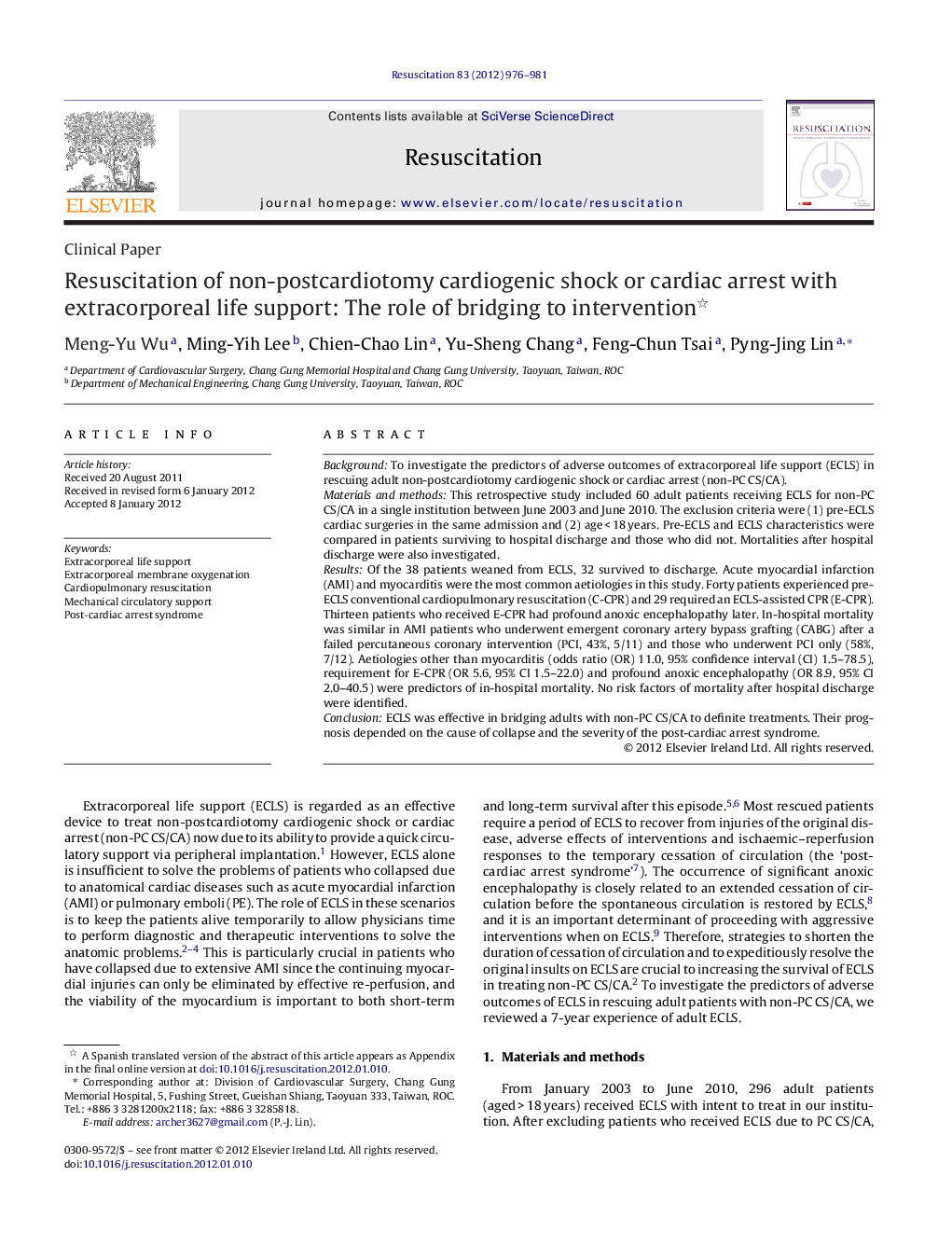| Article ID | Journal | Published Year | Pages | File Type |
|---|---|---|---|---|
| 3009013 | Resuscitation | 2012 | 6 Pages |
BackgroundTo investigate the predictors of adverse outcomes of extracorporeal life support (ECLS) in rescuing adult non-postcardiotomy cardiogenic shock or cardiac arrest (non-PC CS/CA).Materials and methodsThis retrospective study included 60 adult patients receiving ECLS for non-PC CS/CA in a single institution between June 2003 and June 2010. The exclusion criteria were (1) pre-ECLS cardiac surgeries in the same admission and (2) age < 18 years. Pre-ECLS and ECLS characteristics were compared in patients surviving to hospital discharge and those who did not. Mortalities after hospital discharge were also investigated.ResultsOf the 38 patients weaned from ECLS, 32 survived to discharge. Acute myocardial infarction (AMI) and myocarditis were the most common aetiologies in this study. Forty patients experienced pre-ECLS conventional cardiopulmonary resuscitation (C-CPR) and 29 required an ECLS-assisted CPR (E-CPR). Thirteen patients who received E-CPR had profound anoxic encephalopathy later. In-hospital mortality was similar in AMI patients who underwent emergent coronary artery bypass grafting (CABG) after a failed percutaneous coronary intervention (PCI, 43%, 5/11) and those who underwent PCI only (58%, 7/12). Aetiologies other than myocarditis (odds ratio (OR) 11.0, 95% confidence interval (CI) 1.5–78.5), requirement for E-CPR (OR 5.6, 95% CI 1.5–22.0) and profound anoxic encephalopathy (OR 8.9, 95% CI 2.0–40.5) were predictors of in-hospital mortality. No risk factors of mortality after hospital discharge were identified.ConclusionECLS was effective in bridging adults with non-PC CS/CA to definite treatments. Their prognosis depended on the cause of collapse and the severity of the post-cardiac arrest syndrome.
